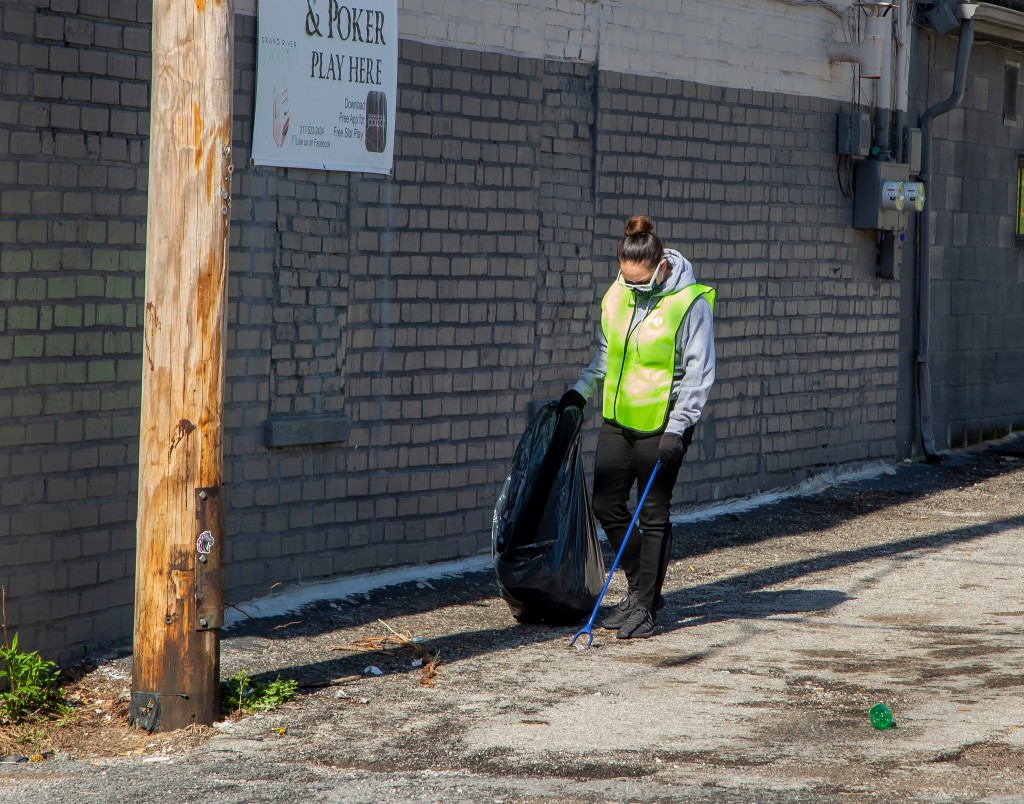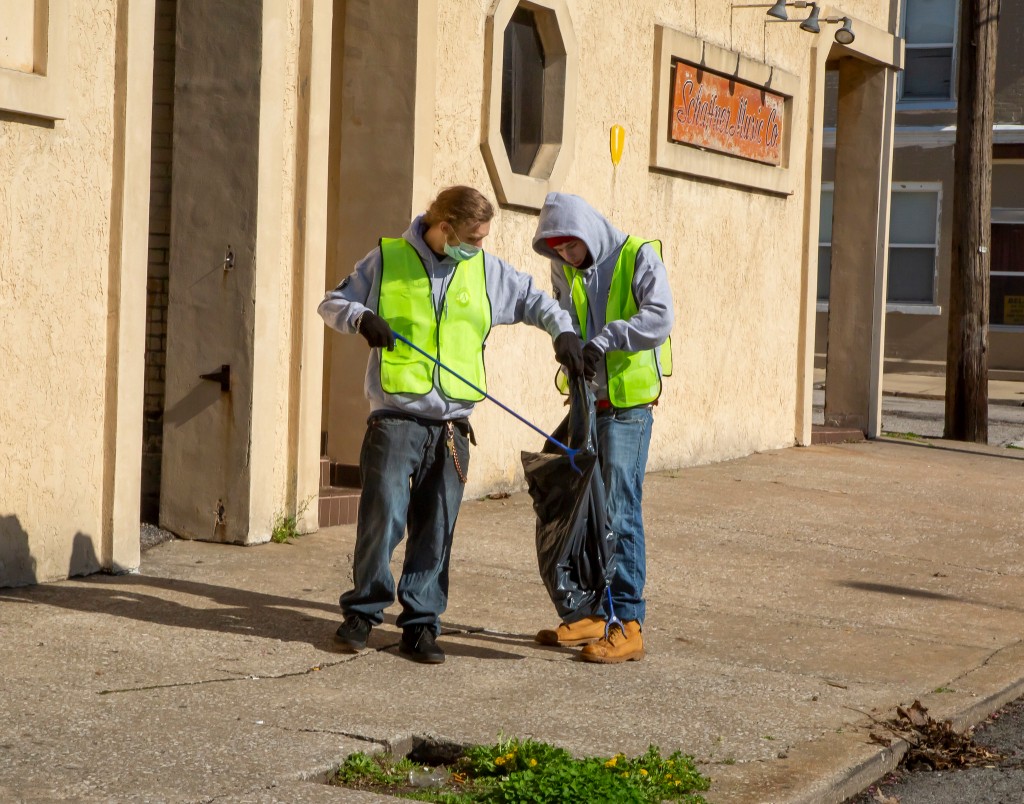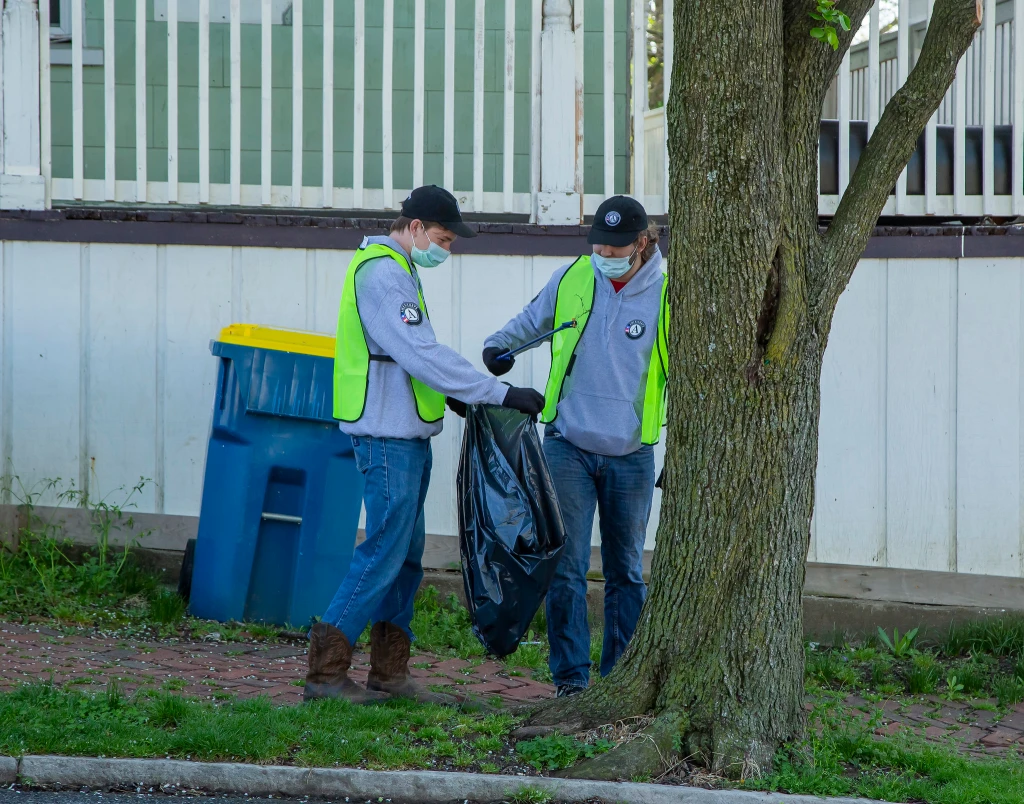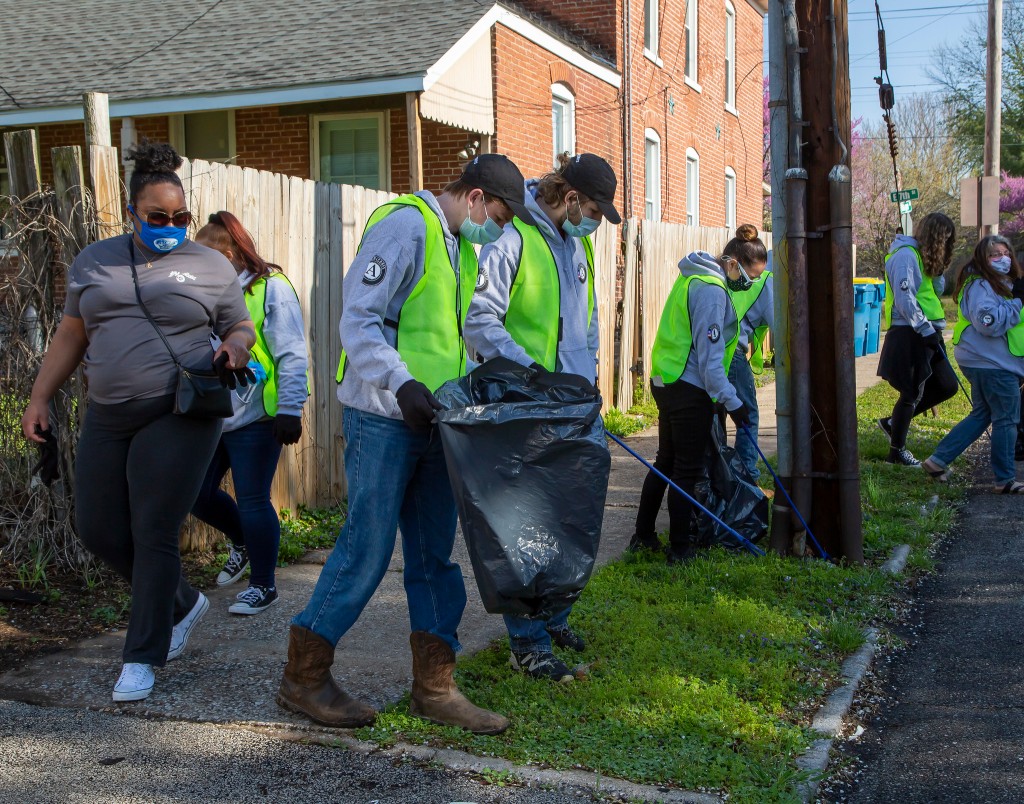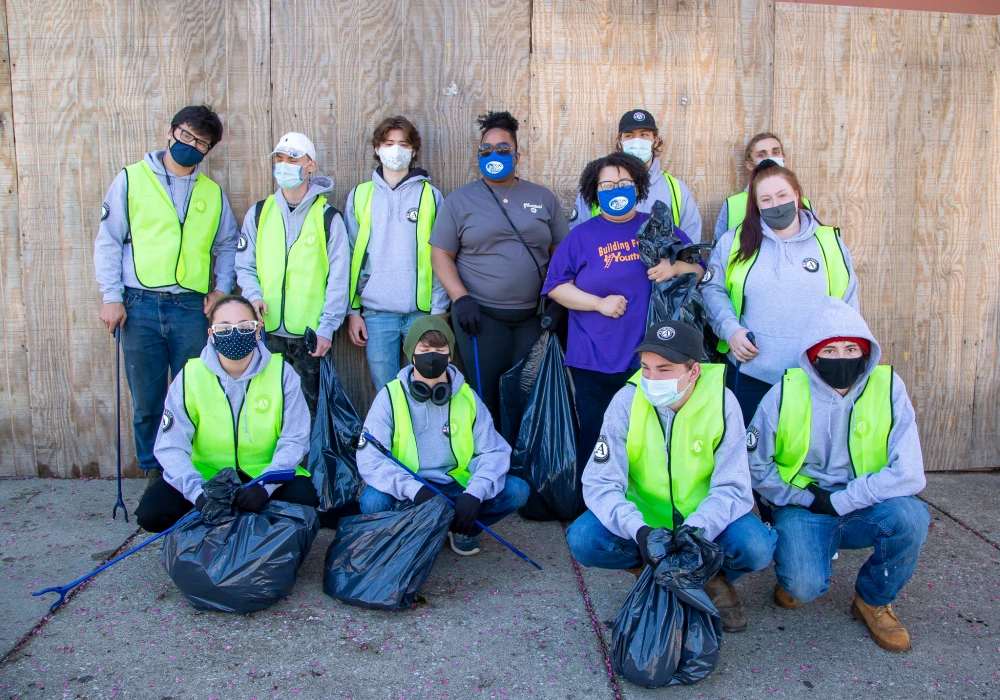
Service Project: Community Clean-up Near Scott Bibb Center
By Alexandra Blockton, ablockton@lc.edu
About two weeks ago, our Building Futures YouthBuild AmeriCorps Program participated in a service project our prior cohort had planned when we were out for COVID-19. It was great to see a new incoming cohort take on a community service project that the prior cohort had created.
Initially, when planning out our program’s service projects, I think it’s great to have the feedback of our students due to the fact they will also be participating in the service project. Our latest project was a Community Clean-up Service Project where we all helped one another pick up trash. While doing so, we were able to discuss with one another the importance of keeping our environment clean. I noticed individuals from our local community coming out of their homes and walking up to AmeriCorps Members thanking them for their service. It made the students feel happy to be a part of the community clean-up service project.
I understand many young adults nowadays wouldn’t choose to just go out freely in their local neighborhoods and pick up trash. When you can take something like picking up trash to keep our community clean and plan it out, all while discussing the students’ ideas and getting their input, it’s a fun and creative process.
“Millions of young adults are too often defined only by their struggles with unemployment, poverty, and crime. Traditionally known as ‘disenfranchised,’ ‘marginalized,’ ‘disconnected,’ and ‘at risk,’ these young people are typically defined solely by their challenges, not by their potential. They urgently need and aspire to earn-knowledge, training, and opportunities that lead to long-term professional and personal success.”
– youthbuild.org
Our Building Futures YouthBuild AmeriCorps program makes it a priority in serving our community for a good outcome. That is one of the things I like about being a part of YouthBuild AmeriCorps: we are here to make a difference while working as a team to get things done.
Our Community Service Projects are based upon the following information from “Blueprint for Service Learning,” a partnership between YouthBuild USA, AmeriCorps, and Mockingbird Education:
- Law of Equal Importance states projects should give as much focus to learning as it does service. The planning, execution, and reflection focuses on learning as the community service.
- Law of Integration Depth requires the project to integrate objectives from multiple subject areas and includes soft skill objectives such as socio-emotional, leadership, employability, and workforce development.
- Law of Primary and Secondary Content states that learning objectives need to be clearly identified and prioritized as primary and secondary.
- Law of Experiential Learning: Project activities are active, hands on activities that include reflection activities. Reflection activities create opportunities for members to reflect on their activities and the act of service.
- Law of Meaningful Reflection: Project activities provide reflection throughout the project (the IPARD process). Members reflect on service, learning, and the connection between the service and the learning.
- Law of Content Depth: Project focuses on academic content and doesn’t only focus on socio-emotional and soft skill needs. Projects include secondary objectives.
Community service projects are created to solve the issues within our community. By making a difference and continuing to utilize these learning skills, YouthBuild AmeriCorps members engage in the service activity and obtain knowledge on exactly why our program completes community service projects within our community.
